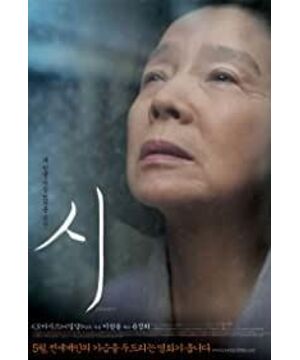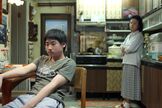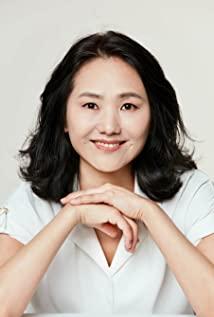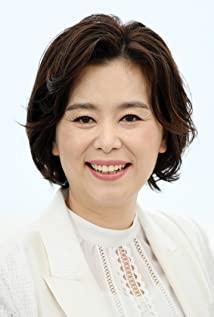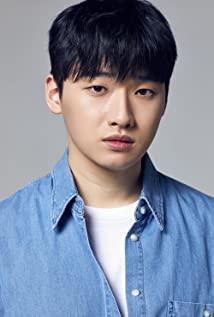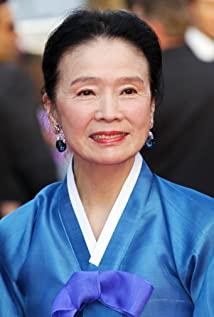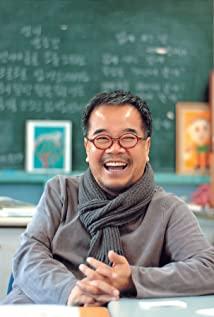The three Korean films that entered and exited the Cannes Film Festival’s competition this year are also truly mediocre. Lin Changshu’s new version of "The Second Girl" is embellished with 5 billion won of artworks. Lee Cangdong and Hong Sangsu coincidentally wrote in their new works. "Poetry". Everyone in Hong Shangxiu's "Xia Xia Xia" can chant poems, but in Li Cangdong's "Poems", an old man who has passed the sixties has only begun to learn poetry.
"Poetry" is a movie by the director Li Cangdong, and it is also a movie by the actor Yin Jingji alone. As one of the three literary queens in the golden age of Korean cinema in the 1960s, Yoon Jung Hee is nearly 70 years old and returns to the big screen 15 years later. She said that she, who hasn't acted in 15 years, is now a blank paper, and everything is a new beginning. With this kind of mentality, Yin Jingji played the role of a poet in "Poetry" in order to realize her dream of becoming a poet in elementary school fifty years ago. Worried about the first poem, constantly looking for the naive dream-catcher of "poem thinking". How to evaluate the comeback performance of the former queen of literature and art, there is only the word "elegance".
The appearance of Yin Jingji also caused the "dissatisfaction" of director Jin Murong, the only living figure in the golden age of Korean films in the 1960s. "This chief director actually invited Yun Jinghui to be the heroine. Didn't that force me to shoot a new film and name it "Prose"?" However, I personally think that the only qualification in the Korean film industry now is that he has the courage to invite Yun Jinghui out of the mountain. The only director is Li Cangdong.
Many people speculate that "Poetry" will follow "Miyang" as Li Cangdong's new trilogy, the second in the trilogy for women. Whether it will become a trilogy is not known, but it is not an exaggeration that "Poetry" is called the second half of "Miyang". "Miyang" is a work about forgiving others, but "Poetry" is a work of searching for forgiveness. The mother in "Miyang" went to forgive the murderer who killed her son, but the grandma in "Poem" pursued forgiveness because of the loss of life caused by her ignorant grandson. "Miyang" is the Christian god guiding the mother how to do it. This is more evident in Li Qingjun's original novel "Insects", which continuously talks with the gods. And "Poetry" since grandma walked out of the church for the girl's mass, she has used a human and poetic method to seek forgiveness.
In Xia Xia Xia, director Hong Sang-soo used the mouth of General Yi Sun-sin to teach Kim Sang-kyung to only look at the good things in the world and write a poem every day, while the poets of Lee Cang-dong teaches students to see the world with diverse eyes. Go write poems. In "Xia Xia Xia", flowers are not flowers, because you are not flowers, you don't know how flowers feel. The apple in "Poetry" is not an apple, but not the apple at this moment, because you can appreciate apples from different angles.
Whose poem is this for? In 2002, Lee Cangdong became a politician, first appeared frequently on TV screens for Roh Moo-hyun's campaign debate, and then became the Minister of Culture, Sports and Tourism of Roh Moo-hyun's government. All this is because Lee Cangdong, who bears the same burden from the country's history as the director of his movie "Mints", feels that Roh Moo-hyun can be trusted. The biggest news in South Korea last year was the suicide of former President Roh Moo-hyun, who was humiliated because of his wife and son's improper behavior, and he couldn't face the citizens who chose to commit suicide by jumping off the cliff. Several poets who have been recited in "The Poetry" include Huang Zhiyu, An Duxuan, etc. These few will also be poets who wrote inscriptions on Roh Moo-hyun's tombstone. Meizi in The Poetry was eventually humiliated by her grandson, but did she also jump down the river in the end? The biggest difference between Lee Cangdong and his contemporaries of the South Korean New Wave is that he is full of goodwill and hope for the world. Are Xue Jingqiu and Wen Suli at the end of "Oasis" finally together? The movie didn't say it, but Li Cangdong said in an interview to answer this question, can't love conquer everything? What about the ending of Miko?
In this world where there is no poetry and no one is looking for poetry, do you still write poetry today?
View more about Poetry reviews


